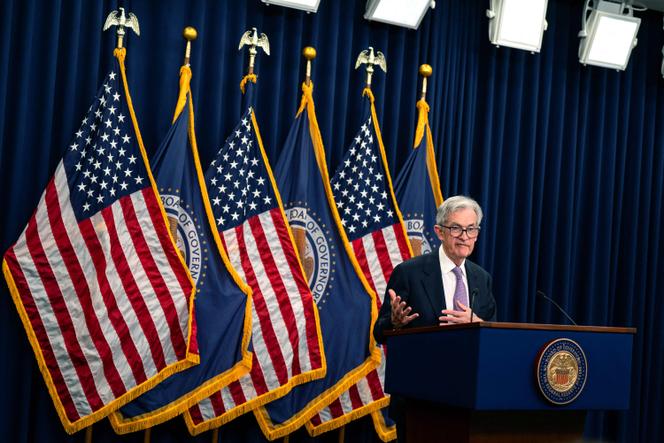
At the end of a dull half-hour conference in which Federal Reserve Chairman Jerome Powell was commenting, on Thursday, November 7, on the quarter-point cut in the monetary institution’s key interest rates – decided as expected by the Fed – the question was finally asked: Will you resign if President Donald Trump asks you to? The answer was “No.” Does he have the right to? “No,” continued Powell curtly, pointing out that it was “not permitted under the law.”
Thus, the Fed chief camped out his independence, two days after Trump’s triumphant election. During his first term, the Republican president had explored the possibility of firing Powell – a moderate Republican whom he had nonetheless appointed, in 2018 – and he said again recently that he would like to have a say in US monetary policy.
Law experts believe that Trump cannot dismiss the Fed chief without serious cause. His term runs until 2026 while he is appointed to the institution’s Board of Governors until 2028. During the term that Trump will start on January 20, 2025, only one seat on the Board expires. While he may appoint a new president, the Republican will not have the opportunity to reshape the board, part of which is made up of professionals from regional central banks.
This Thursday, asked about the risk of interference from the president, Powell, decidedly not a man of many words, replied, “I’m not going to get into any of the political things today.”
A few quarters’ respite
To be above reproach and give no foothold or pretext to Trump’s predictable attacks, Powell remained as technical as possible, refusing to utter the president-elect’s name. Yet Trump’s policies, which have promised to cut taxes and introduce a tariff on imports of at least 10%, may increase the country’s budget deficit and revive inflation.
The Fed chief’s response was that “in the near term the election will have no effects on our [monetary] policy decisions. (…) Here, we don’t know what the timing and substance of any policy changes will be. We, therefore, don’t know what the effects on the economy would be, specifically whether and to what extent those policies would matter for the achievement of our goal variables, maximum employment, and price stability. We don’t guess, we don’t speculate, and we don’t assume.”
All he agreed to do was reiterate the Fed’s principled stance on budget deficits, which exceed 6% of the country’s gross domestic product. “The US fiscal – federal government’s fiscal path – fiscal policy is on an unsustainable path. The level of our debt, relative to the economy, is not unsustainable. The path is unsustainable,” Powell said, noting that the country had a “large deficit [at a time when] you’re at full employment. And that’s expected to continue. So it’s important that (…) they be dealt with. It is ultimately a threat to the economy. (…) We don’t have oversight over fiscal policy.”
You have 54.38% of this article left to read. The rest is for subscribers only.
Source: politics.einnews.com…

Leave a Reply